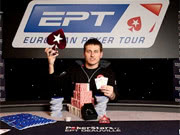 When Vadzim Kursevich made it to the final table in Deauville during the most recent stop of the European Poker Tour, he had already made poker history. He was the only Belorussian player to make the final table at more than one EPT event, and he did it in back-to-back seasons. Kursevich sat at a table of Frenchmen and Italy’s Luca Pagano, who has long been a regular at the EPT tables (and has been in the top three on the EPT All-time Leaderboard pretty much from the very beginning of the tournament series), so while his presence didn’t go unnoticed, no one really expected him to win. Even though he entered the final table second in chips and there was no clear “strongest player” at the table before the game started, when poker commentators were making their guesses about the outcome of EPT Deauville, Kursevich’s name rarely came up.
When Vadzim Kursevich made it to the final table in Deauville during the most recent stop of the European Poker Tour, he had already made poker history. He was the only Belorussian player to make the final table at more than one EPT event, and he did it in back-to-back seasons. Kursevich sat at a table of Frenchmen and Italy’s Luca Pagano, who has long been a regular at the EPT tables (and has been in the top three on the EPT All-time Leaderboard pretty much from the very beginning of the tournament series), so while his presence didn’t go unnoticed, no one really expected him to win. Even though he entered the final table second in chips and there was no clear “strongest player” at the table before the game started, when poker commentators were making their guesses about the outcome of EPT Deauville, Kursevich’s name rarely came up.
The first player out was Irishman Mick Graydon, who went all in on Ac9h and lost it all on what would become a battle of the high cards (Guichard held AdKc). It took two hours for first blood, and the game would prove to be a long one before the night was done.
EPT favorite Luca Pagano performed in this final table as he has in most other final tables. This is the seventh time that the Italian has made it to a final table at the EPT, and he closed out the day in seventh place. While his performance at the final table was unimpressive, he made it over the two million dollar mark for live tournament earnings and boosting his rank on the all-time Italian Money List.
Three and a half hours into the game, Olivier Rogez was sent home with sixth place and €155,000 (another out by Guichard), and two hours later, Than Trong sent someone else home: Bruno Jais was out in fifth. The players took a much needed hour break, and when they returned, the tone of the game shifted, and the players took off the gloves (perhaps they were simply tired from playing for six hours already).
Kursevich made his first elimination of the evening by taking out Yorane Kerignard when his KJ came out higher than the Frenchman’s Q9 (the board showed trip 5s and nothing else of use to either player. Not content with one notch in his belt, Kursevich gunned for Than Trong, taking him out in third place, Ace high to King high.
Finally, the game was down to only two– Kursevich and Frenchman Paul Guichard. On the final hand, Guichard held pocket 5s and Kursevich held 3h6h for a flush/straight draw. The board read Js-7h-5d-9h, and the 8c on the river busted Kursevich’s flush draw, but gave him the straight that he needed to win the hand and the game, sending Guichard home with only (only!) €557,000 for second place.
The final places and amounts won are:
- Vadzim Kursevich – €875,000
- Paul Guichard – €557,000
- Vuong Than Trong – €328,000
- Yorane Kerignard – €260,000
- Bruno Jais – €200,000
- Olivier Rogez – €155,000
- Luca Pagano – €110,000
- Mick Graydon – €67,200
The European Poker Tour has announced that this season’s Grand Final will once again take place in Monte Carlo, Monaco, after last year’s segue to Madrid. Kursevich has scored himself a seat at that event with this win, and one thing is for certain: should he make it to the final table in another EPT event, he won’t be overlooked again.
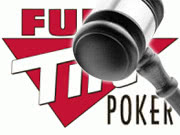 Full Tilt Poker, it seems, is bound and determined to stay in the news, one way or another. The ongoing negotiations between Groupe Bernard Tapie and the United States Department of Justice are making news again– this time because several professional poker players still owe the site a hefty debt that is throwing a wrench into the sale of the company.
Full Tilt Poker, it seems, is bound and determined to stay in the news, one way or another. The ongoing negotiations between Groupe Bernard Tapie and the United States Department of Justice are making news again– this time because several professional poker players still owe the site a hefty debt that is throwing a wrench into the sale of the company.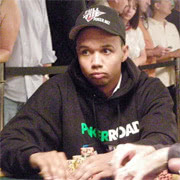 It’s no wonder that GBT’s lawyer uses the apple analogy, as FTP has been less than forthcoming about their finances, and these debts only came to light due to extensive searching by the prospective buyers. Dayanim stated that very few of the players who owe money to FTP have made any effort or expressed any willingness to pay it back. These players include Phil Ivey, David Benyamine, Barry Greenstein, Erick Lindgren, and Mike “The Mouth” Matusow, although there’s speculation that the debts extend all the way through the lineup of recent Full Tilt Pro players.
It’s no wonder that GBT’s lawyer uses the apple analogy, as FTP has been less than forthcoming about their finances, and these debts only came to light due to extensive searching by the prospective buyers. Dayanim stated that very few of the players who owe money to FTP have made any effort or expressed any willingness to pay it back. These players include Phil Ivey, David Benyamine, Barry Greenstein, Erick Lindgren, and Mike “The Mouth” Matusow, although there’s speculation that the debts extend all the way through the lineup of recent Full Tilt Pro players.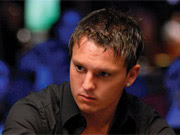
 Best Tournament Performance: Pius Heinz
Best Tournament Performance: Pius Heinz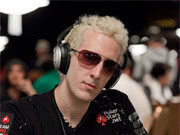 Rob Gardner Memorial Award for the Poker Personality of the Year: Bertrand ‘ElkY’ Grospellier
Rob Gardner Memorial Award for the Poker Personality of the Year: Bertrand ‘ElkY’ Grospellier Eight professional poker players have filed a lawsuit against Ultimate Bet for a scam that the company ran three years ago, which allowed the Cereus Network (which owns Ultimate Bet and Absolute Poker) to embezzle 20 million dollars from UB players. The players are out to crucify Ultimate Bet for a violation of the Racketeer Influenced and Corrupt Organizations Act (RICO), a piece of legislation originally created to allow the government to prosecute organized crime.
Eight professional poker players have filed a lawsuit against Ultimate Bet for a scam that the company ran three years ago, which allowed the Cereus Network (which owns Ultimate Bet and Absolute Poker) to embezzle 20 million dollars from UB players. The players are out to crucify Ultimate Bet for a violation of the Racketeer Influenced and Corrupt Organizations Act (RICO), a piece of legislation originally created to allow the government to prosecute organized crime.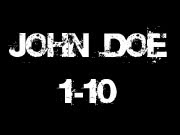 The complaint filed last week refers to a number of unnamed defendants, known as John Doe 1-10. This anonymity is not due to an effort to maintain privacy surrounding the lawsuit, but because the plaintiffs don’t actually know who is directly responsible, due to the coverup for which they’ve cited a RICO violation:
The complaint filed last week refers to a number of unnamed defendants, known as John Doe 1-10. This anonymity is not due to an effort to maintain privacy surrounding the lawsuit, but because the plaintiffs don’t actually know who is directly responsible, due to the coverup for which they’ve cited a RICO violation:  The last year has been a rough one for
The last year has been a rough one for  Lock Poker has added a new star to their LockPro Elite lineup: Melanie Weisner has become the latest name to join the poker site’s team of pros, adding to an already impressive lineup that includes Chris Moorman and Matt Stout, along with many others.
Lock Poker has added a new star to their LockPro Elite lineup: Melanie Weisner has become the latest name to join the poker site’s team of pros, adding to an already impressive lineup that includes Chris Moorman and Matt Stout, along with many others. Since her quick start in poker, she’s appeared on both
Since her quick start in poker, she’s appeared on both 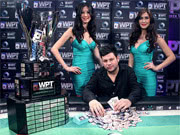 The first ever World Poker Tour event in Dublin, Ireland, has gone to Brit David “Dubai” Shallow, who fought his way past the 337 other entrants to nab the title and $289,031 first place prize. In addition to the cash and recognition, Shallow also leaves Dublin with a seat at the WPT World Championships worth $25,000. This is by far the biggest win of Shallow’s career, and it makes up the vast majority of his $325k career tournament earnings.
The first ever World Poker Tour event in Dublin, Ireland, has gone to Brit David “Dubai” Shallow, who fought his way past the 337 other entrants to nab the title and $289,031 first place prize. In addition to the cash and recognition, Shallow also leaves Dublin with a seat at the WPT World Championships worth $25,000. This is by far the biggest win of Shallow’s career, and it makes up the vast majority of his $325k career tournament earnings. Blom had to beat out some pretty heavy competition to win this particular title– sharing the final table with him were Daniel Negreanu, fellow Team PokerStars Pro Humberto Brenes, Galen Hall, who won the PCA Main Event in 2010, and 2010 WSOP Main Event winner Jonathan Duhamel, who was back on his feet not a month after the notorious violent attack against him. Brenes was the first player out at the final table, followed by Mike “Timex” McDonald and Scott Seiver in the bubble seat. Negreanu made the first money finish and left with $250,900, while Duhamel followed him to the rail and would go home with $313,600. Hall held on a while longer, finishing in third place with $470,400, and the head to head play was ultimately resolved by Blom’s ability to hang in there longer than Dan Shak, who was eventually booted as the runner up. Shak made a hefty $846,700, however, which isn’t shabby for a day’s work. Blom made an impressive $1,254,400 for his first place win.
Blom had to beat out some pretty heavy competition to win this particular title– sharing the final table with him were Daniel Negreanu, fellow Team PokerStars Pro Humberto Brenes, Galen Hall, who won the PCA Main Event in 2010, and 2010 WSOP Main Event winner Jonathan Duhamel, who was back on his feet not a month after the notorious violent attack against him. Brenes was the first player out at the final table, followed by Mike “Timex” McDonald and Scott Seiver in the bubble seat. Negreanu made the first money finish and left with $250,900, while Duhamel followed him to the rail and would go home with $313,600. Hall held on a while longer, finishing in third place with $470,400, and the head to head play was ultimately resolved by Blom’s ability to hang in there longer than Dan Shak, who was eventually booted as the runner up. Shak made a hefty $846,700, however, which isn’t shabby for a day’s work. Blom made an impressive $1,254,400 for his first place win. The Alderney Gaming Control Commission (AGCC), from whom we’ve heard a great deal during the course of the Full Tilt scandal, has issued a new statement to British citizens, urging them to take action. While the AGCC doesn’t come out and say that British players who are still owed money by Full Tilt Poker (some of the 440 million dollars in player funds that have been held by the company for almost a year now) should press legal charges, they certainly imply it. The most recent press release from the gaming commission informs players that they should contact their local authorities if they feel that they have been the victim of a crime, and also reminds them of the many legal cases currently pending against Full Tilt– just in case some British citizens are starting to think that they should get in on that action.
The Alderney Gaming Control Commission (AGCC), from whom we’ve heard a great deal during the course of the Full Tilt scandal, has issued a new statement to British citizens, urging them to take action. While the AGCC doesn’t come out and say that British players who are still owed money by Full Tilt Poker (some of the 440 million dollars in player funds that have been held by the company for almost a year now) should press legal charges, they certainly imply it. The most recent press release from the gaming commission informs players that they should contact their local authorities if they feel that they have been the victim of a crime, and also reminds them of the many legal cases currently pending against Full Tilt– just in case some British citizens are starting to think that they should get in on that action.